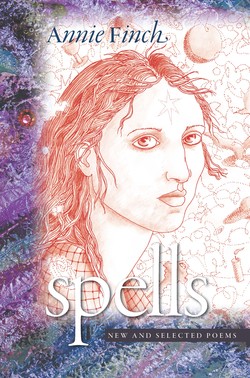Читать книгу Spells - Annie Finch - Страница 7
На сайте Литреса книга снята с продажи.
ОглавлениеPREFACE
As long as I can remember, my life has been dedicated to poetry—to dreaming, hearing, reading, and making poems. Spells gathers the most important of this poetic work written over four decades, from 1970 to 2010. In addition to selections from my books The Encyclopedia of Scotland (1982), Eve (1997), Calendars (2003), and Among the Goddesses: An Epic Libretto in Seven Dreams (2010), Spells collects many new and previously unpublished poems, including “The Lost Poems,” experimental, metrical poems from the 1980s that did not find their audience until the recent embrace of formal poetic strategies by avant-garde poets.
The poetry in Spells is organized into sections by decade. Rather than grouping the poems according to the books in which they first appeared, I have chosen to arrange the poetry so that readers can follow its unfolding in reverse chronological order. The two short final sections, of translations and performance work, are arranged in chronological order and will spiral you forward again. The collection includes lyric and narrative poems, performance texts, verse drama, translations, libretti, chants, rituals, elegies, sonnets, villanelles, ars poetica, epithalamia, valentines, prayers, letters, dialogues, pastiche, and other shapes. Most of the poems are spoken in ancient and contemporary rhythms: sapphics, cretics, dactyls, amphibrachs, trochees, anapests, folk stanzas, iambs, and others.
The book’s title, Spells, captures my sense of poetry as a performative art—patterned language that invites readers to experience words not just in the mind but in the body. The title also points to the spiritual foundation of my aesthetic. As a Wiccan, I write poems as incantations to strengthen our connections to each other, to the passage of time, and to the sacred cycles of nature.
Compiling this book has led me to appreciate how much I was inspired as a poet by coming of age during the feminist movement of the 1970s. Reading it has helped me understand the ways I struggled over the years to throw off the burden of misogyny on my spiritual, psychological, intellectual, political, and poetic identities. My themes are often female-centered: sexuality; friendship; childbirth, breastfeeding, mothering, and abortion; sexism and incest; women’s mythology and spirituality; and personal and cultural foremothers. I am proud to define myself as a woman poet. Women’s poetry, from the ancient Sumerian Enheduenna to Dickinson and her neglected “poetess’” sisters and daughters, including Osgood, Dunbar-Nelson, Teasdale, and Millay, and forward through Bishop, Plath, Bogan, Helen Adam, H.D., Brooks, Kizer, and Lorde, has been critically important to me (along with, of course, the work of many beloved male poets). In my current lyric, narrative, and epic poetry, as well as in my dramas and libretti, my ambition is to create a body of work for a re-emerging matriarchal culture.
Throughout my career, I have collaborated with other artists, on architectural and visual installations, musical settings and opera, drama and performance poetry, and translations. My aim as a translator is to embody the spirit of the original poems within their original formal constraints (e.g., Akhmatova’s amphibrachs, Labé’s rhyme schemes, Sappho’s sapphics), allowing the reader to experience the poetry’s original shapes. In my dramatic pieces, I am drawn to mythopoetic theater’s blending of spoken language with music, choreography and masks, to enact a ritual journey toward psychological and spiritual power.
Compiling Spells has been a transformative experience that has filled me with gratitude to the fierce and accepting Muse who has whispered poetry into my meditative darkness over the past half-century. I invite the reader to speak these poems aloud (even if only in the mind), and to be open to the spells they cast.
Portland, Maine
June 2012
